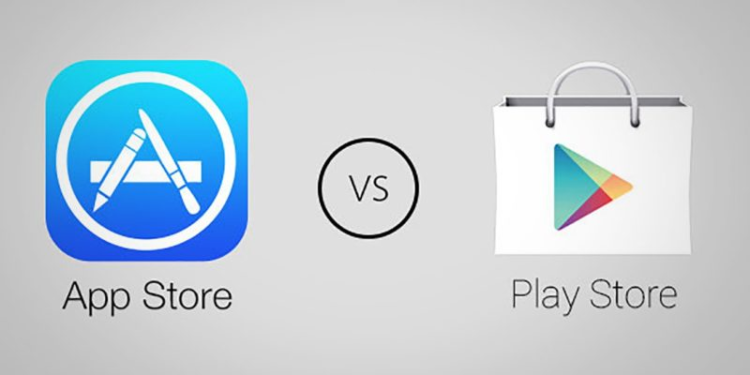In the digital age, choosing the right app marketplace is crucial for both users and developers. The two dominant platforms, Google Play Store and Apple’s App Store, each offer unique benefits and challenges. This article delves into the detailed comparison between these two giants, helping you decide which is better for you.
Overview of Google Play Store and App Store
Google Play Store
The Google Play Store, launched in 2012, is the official app distribution platform for Android devices. It offers a wide array of apps, games, books, movies, and music. With over 2.9 million apps available, it boasts a vast ecosystem that caters to a diverse audience.
Apple’s App Store
Apple’s App Store, launched in 2008, is the exclusive app marketplace for iOS devices. Known for its stringent app review process, the App Store offers approximately 1.96 million apps. It emphasizes quality and security, ensuring a premium user experience.
User Experience
Interface and Usability
Google Play Store
The Google Play Store features a clean, intuitive interface with easy navigation. Its recommendation system is powered by Google’s AI, providing personalized app suggestions based on user behavior and preferences. The search functionality is robust, enabling users to find apps efficiently.
App Store
The App Store is renowned for its polished, user-friendly interface. Apple’s editorial team curates content, offering editorial stories, app collections, and recommendations. This human touch enhances discoverability and user engagement. The search function is efficient, but the curated content often steals the spotlight.
App Quality and Variety
Google Play Store
The Google Play Store offers a vast range of apps, from productivity tools to entertainment apps. However, the open nature of Android means that there can be a significant variation in app quality. Despite Google’s efforts to enhance security and quality, users might occasionally encounter less reliable apps.
App Store
Apple’s App Store is synonymous with quality. The rigorous app review process ensures that each app meets high standards for performance, security, and user experience. This results in a more consistent and reliable selection of apps, albeit with fewer options compared to the Play Store.
Read More: www.googlerefund.com
Developer Perspective
App Development and Submission
Google Play Store
Developing and submitting apps to the Google Play Store is relatively straightforward. The Android SDK is accessible and well-documented, catering to a broad developer base. The submission process is faster, with fewer restrictions, allowing for quicker updates and iterations.
App Store
Developing for the App Store involves stricter guidelines and a more rigorous review process. While the iOS SDK is also robust and developer-friendly, the submission process can be time-consuming. However, the payoff is a higher level of trust and credibility among users.
Revenue and Monetization
Google Play Store
The Google Play Store offers various monetization options, including in-app purchases, ads, and subscriptions. Google’s flexible policies benefit developers looking to experiment with different revenue models. The revenue split is typically 70/30, with Google taking 30%.
App Store
The App Store also offers diverse monetization options. Apple is known for its affluent user base, which often translates to higher revenue per user. The revenue split is similar to Google’s, but Apple recently introduced a reduced commission rate of 15% for developers earning less than $1 million annually.
Security and Privacy
Google Play Store
Google has made significant strides in improving the security of the Play Store. The Google Play Protect system scans apps for malware and other security issues. However, the open nature of Android can sometimes lead to vulnerabilities, requiring users to be more vigilant.
App Store
The App Store’s security measures are more stringent. Apple’s closed ecosystem and strict app review process minimize the risk of malicious apps. Privacy is a core tenet, with features like App Tracking Transparency providing users greater control over their data.
User Demographics and Market Share
Google Play Store
The Play Store enjoys a larger global market share, particularly in regions like Asia, Africa, and South America. Android’s affordability and flexibility make it the preferred choice for a diverse demographic, from budget-conscious consumers to tech enthusiasts.
App Store
The App Store dominates in North America, Western Europe, and affluent markets worldwide. iOS users are often perceived as more affluent and willing to spend on apps and in-app purchases, making it an attractive platform for premium app developers.
App Discoverability and Marketing
Google Play Store
Google’s powerful search algorithms and AI-driven recommendations aid app discoverability. Developers can leverage Google Ads and Firebase for targeted marketing and analytics. The Play Store’s vast ecosystem can be both a blessing and a challenge, as standing out among millions of apps requires strategic marketing.
App Store
The App Store’s curated content and editorial features significantly enhance app discoverability. Apple’s focus on storytelling and editorial content helps highlight high-quality apps. Developers can use Apple Search Ads to boost visibility. However, the competitive nature of the App Store demands top-notch quality and user engagement.
Customer Support and Community
Google Play Store
Google provides extensive documentation and support forums for developers. While the community is large and active, personalized support can sometimes be lacking. Google’s continuous updates and improvements reflect its commitment to developer success.
App Store
Apple offers robust support for developers, including comprehensive documentation, forums, and direct support channels. The developer community is vibrant, with events like WWDC fostering innovation and collaboration. Apple’s support system is often praised for its responsiveness and quality.
Conclusion: Which Is Better for You?
The decision between the Google Play Store and the App Store hinges on your specific needs and preferences.
- For Users: If you prioritize a wide variety of apps and flexible options, the Google Play Store may be more suitable. If you value app quality, security, and a premium experience, the App Store is the way to go.
- For Developers: If you seek a faster, more flexible submission process and a broad global audience, the Google Play Store offers a compelling platform. For those who prioritize a secure, high-quality environment with a potentially higher revenue per user, the App Store stands out.
Ultimately, both platforms have their unique strengths, and understanding these can help you make an informed decision.





![7 Best POS Software in the UK [2026 Edition]](https://todaynews.co.uk/wp-content/uploads/2026/02/7-Best-POS-Software-in-the-UK-2026-Edition-360x180.png)







































































